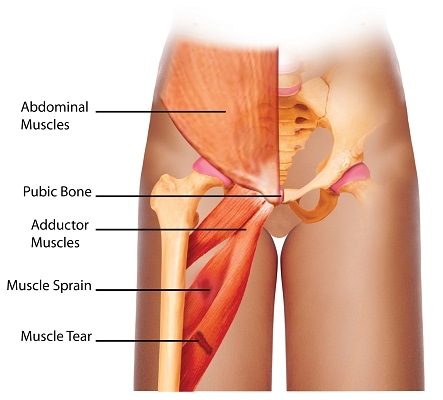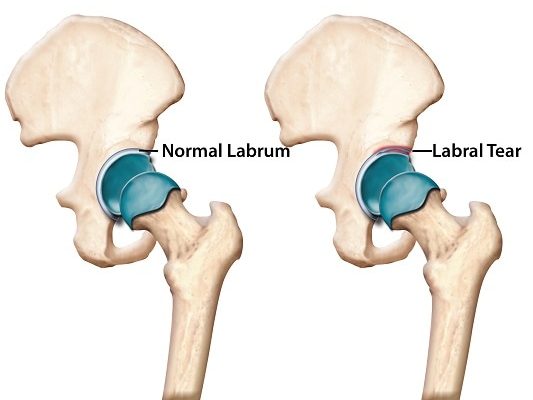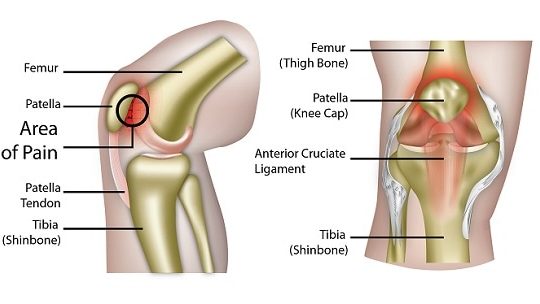With over 70% of the Earth covered in water, it is clear to see the importance it plays not just for nature, but also for human survival. In fact, almost 60% of an adult body is made up of water, with the levels being much higher in infants, which is why hydration is important in daily life not just in sport.
The importance of hydration
There is no doubt then that keeping hydrated is a common necessity of life. Getting enough fluids into the body can help to keep it hydrated and healthy, also helping to prevent adverse effects such as tiredness, headaches, lack of concentration (the brain is made up of around 73% water) and poor physical performance as a result of dehydration. What other crucial benefits does keeping hydrate provide?
• Transportation of key nutrients to the cells in the body
• Removal of harmful and toxic waste products from the body
• Constantly lost through perspiration and urine, so needs replenishment
• Contributes to the thermoregulation of the body
• Prevents the loss of essential electrolytes
Fluids are not only encompassed in water but also many variations including juice, milk, tea and even soft drinks are all sources of hydration. Even the food we eat can contain between 15-25% of some form of fluid.
How much fluids is needed?
A debate that is still on-going, there are many varying views and opinions as to what amount of daily fluid intake is enough for a person to perform at their maximum capacity. The problem is, the recommended fluid intake is largely dependent on the individual, their age, gender and activity levels.
The EFSA (European Food Safety Authority) suggests that an adult male should have a daily intake of 2.5 litres of water and an adult female should have 2 litres of water daily. Of this around 80% should come by the way of drinks with the other 20% by way of food intake. The Institute of Medicine on the other hand claim that men should have around 3 litres per day and women 2.2 litres.
Although there is no conclusive figure, it is clear that more is better than less when it comes to keeping hydrated. It is well documented that water can help with constipation, acne and kidney stones.
What is available to drink?
There are various fluids and mixtures available to keep hydrated. Understanding which fluids are best for a certain situation can be helpful when building a nutrition plan. Drinks don’t only provide water and essential minerals but a few can also provide energy.
Water
Water (H2O) is usually the most common and best source of hydration.
Pros: Maximum hydration, maximum hydration, no calories, free in most cases, good for the skin, PH neutral so no damage to the teeth
Cons: lack of flavour or aroma
Some people may require something with more flavour though and in that case, some squash, flavourings or a slice of orange or lemon can give the water a nicer flavour and aroma.
Fruit juices
Fruit juices or smoothies are usually blended or processed versions of fruits from their solid form to a liquid taste. This makes for easier consumption and also hydration. A major benefit of these drinks is that they contain a high level of vitamins.
Pros: Flavourful, high level of vitamins, low-fat content
Cons: Can contain high amounts of sugar, can be acidic and damage the teeth
When looking to drink such juices it is recommended to drink vegetable juices instead as these contain less sugar, fewer calories and higher dietary fibres. Some good examples of this are tomato juice, carrot juice, celery juice and aloe vera juice. If you are more attracted to fruit juices, then a healthier way to have them is to dilute it with water or ice.
Soft drinks
Also known as ‘fizzy drinks’or ‘carbonated drinks’, these type of drinks contain sugar or sweeteners as well as artificial flavourings. These are usually available in different forms and served with ice in certain instances for a more refreshing taste.
Pros: Flavorful, refreshing, good source of energy
Cons: Contains high amounts of sugar or sweeteners, can damage the teeth, contain high amounts of calories, no added nutritional benefit
It is recommended to select ‘low-calorie’ and ‘no added sugar’ varieties of soft drinks if you do drink these, although it is best to avoid the consumption of this drink type regularly.
Milk
Milk is a pale, whitish liquid produced by cows and is the main source of nutritional value to young mammals. Milk usually contains about 87% of water, 5% of carbohydrates and 4% fat. It is also a good source of various vitamins and minerals.
Pros: Helps to build and maintain bone mass, contains various beneficial vitamins and minerals
Cons: Whole milk can contain high fat and cholesterol content, not suitable for those with lactose intolerance
When drinking milk it may be better to go for the semi-skimmed or skimmed versions as these usually contain less fat and calories. Alternatively, if you do not find cow’s milk to be suitable then almond, rice or soya milk are healthy substitutes also.
Tea and coffee
These two drinks are very popular fluids, with tea being the second most consumed fluid in the world after water. Both contain caffeine at varying levels. All teas contain flavonoids, a type of antioxidant.
Pros: Contain antioxidants, stimulates the brain and nervous system, tea helps to reduce stress
Cons: Too much caffeine can increase stress levels, raises blood pressure, can increase thirst, diuretic properties
Drinking tea or coffee once in a while can be a good source of hydration, and also provide various health and cognitive benefits. Too much however can have the opposite effect and affect the body’s functions (coffee is a form of diuretic and can increase urination frequency). It may be advised to drink herbal teas or decaffeinated coffee as healthier alternatives.
Alcohol
It is not advised to drink alcohol if looking to become hydrated. Consumption of a large quantity of alcohol prohibits the production of an anti-diuretic hormone in the body which absorbs water to keep you hydrated, for this reason, the body loses more fluid and becomes dehydrated instead.
Pros: Small quantities can help lower cholesterol levels, moderate amounts can prevent gallstones
Cons: Can be fattening, damaging to the skin, damaging to the liver, high diuretic properties
Although a glass of wine may be considered beneficial for the heart once in a while, high levels of consumption can reverse the beneficial properties the drink contains and compared to all the other drinks, it provides the least amount of hydration.
What role does dehydration play?
There are various levels of dehydration based on the level of fluids lost or lack of fluid intake. When the brain senses that the body is lacking enough water to function properly, it sends sensory signals to alert the person that fluid intake is necessary. The most common signs of dehydration are thirst and dark urine.
Other symptoms that may also indicate dehydration include:
• tiredness
• headache
• dry mouth
• dry skin
• nausea
• loss of stamina
Dehydration can easily be stopped and reversed by taking the adequate amounts of fluids required for the body to function at a good level. The main causes of dehydration include:
Illness – certain illnesses increase the excretion of fluids from the body e.g. vomiting and diarrhoea
Diabetes – those suffering from diabetes are often dehydrated due to the higher than normal levels of glucose in the bloodstream. As the kidneys work harder to produce more urine to remove the excess glucose, more fluid is excreted from the body.
Sweating – increased or excessive sweating can result in dehydration due to the amount of fluid lost from the body. This is usually seen in those exercising, with a fever, or those working in hot conditions.
Alcohol – as alcohol has highly diuretic properties, more urine is expelled from the body meaning the body will have fewer fluids to function well.
In all these instances, it is important that the lost fluids are adequately restored by means of drinking water or other liquids that can replace any of the lost nutrients in the body.
What is over-hydration?
Over-hydration (also known as water intoxication) is the process of drinking an excessive amount of water or fluids, much more than the body needs or should store. This condition can, in fact, change the balance between water and sodium in the bloodstream.
When there is too much water in the system, water intoxication can occur, and the sodium levels in the blood can be diluted to such a low level that there is not enough in the bloodstream and then hypernatremia occurs. If hyponatremia occurs, this means that there is an electrolyte imbalance in the body and the cells and tissues can begin to swell causing health complications.
There are usually two types of over-hydration, these include excessive water consumption or water retention.
Excessive water consumption— this occurs when more water or fluids are ingested compared to how much urine the kidneys can get rid of causing more water to be collected.
Water retention – if there is a condition or illness that prevents the body for getting rid of excess water, then the water is retained and there is an increased chance of the balance of the water being thrown off.
Factors influencing fluid intake include:
• Environment – hot weather and humidity can increase the amount a sweat a person produces. Heated air indoors can also cause an additional fluid loss in winter times as well as very high altitudes (over 8,000 feet) which can increase urination and increased perspiration. For all these cases, an additional intake of fluids is required for the body to function properly.
• Illnesses or health conditions– certain conditions may limit or require an increased fluid intake. Illnesses such as diarrhoea, fever, flu, vomiting and similar infections can increase the number of fluids lost. Bladder infections or urinary tract stones (urolithiasis) may also increase the need for more fluid intake. Alternative certain conditions may also impair the excretion of water from the body such as liver or kidney disease and heart failure.
• Exercise – high-intensity exercising can increase the amount of sweating that occurs. It is usually suggested to drink around 500-700 millilitres of water to compensate for any fluid loss during moderate exercises.
For more intense sports such as football, rugby or even marathons, at least 1litre of fluids may be required to adequately nourish the person. Dependent on the person and how much they sweat during exercise, the fluid debt may be more or less than this. Many sports drink now contain sodium to help replace the sodium and electrolytes lost during sweating, examples of this being Lucozade, Powerade, Gatorade etc. These, in turn, help to reduce the chances of hyponatremia.
• Pregnancy or breastfeeding – when expecting or nursing a child, women require extra fluids to remain hydrated as they are sharing their nutrients and fluids with the baby, whether in the form of milk or while it is still a foetus. The IOM (Institute of Medicine) recommends that pregnant women should drink at least 2 litres of water a day, whilst breastfeeding women should have even more (3 litres) fluids per day.
How to stay adequately hydrated
It is vital to stay hydrated for optimal brain function and health. Staying hydrated can also help slow the ageing process, and improve overall skin complexion. Those who are athletes are fully aware of the importance to consume the right amount of water. Unfortunately, most athletes do not consume the proper amounts of water.
If you are constantly dehydrated your performance suffers and you will not be at your best. When you begin or finish a session dehydrated, your energy stores are used up more quickly as your body fights to compensate for the lack of water and minerals in the bloodstream. The following tips can help you to stay hydrated for longer.
• Keep a water bottle with you during the day to make it an easy and natural thing
• Use a refillable bottle rather than buying costly water bottles that add to plastic bottle waste.
• Try adding a lemon, lime, or orange slice to your water to mix it up as well as increase the health benefits of the water.
• When working out be sure to drink water before, during, and after to ensure that you are fully hydrated.
• Isotonic sports drinks can also be very useful at replenishing depleted energy stores whilst also rehydrating the person





